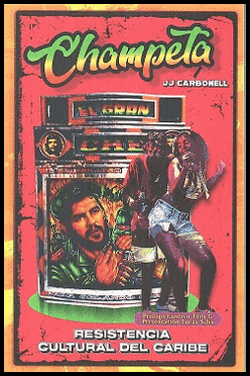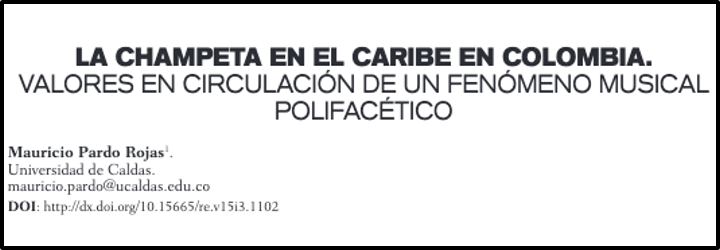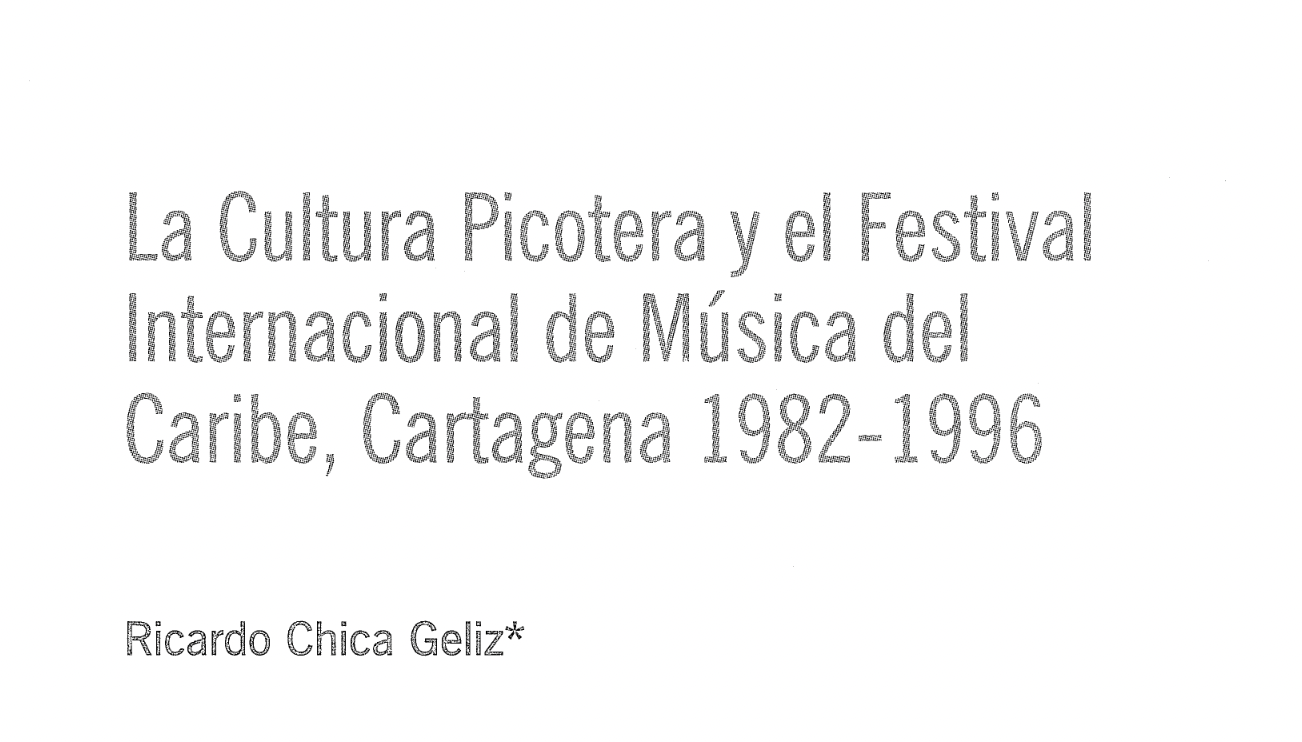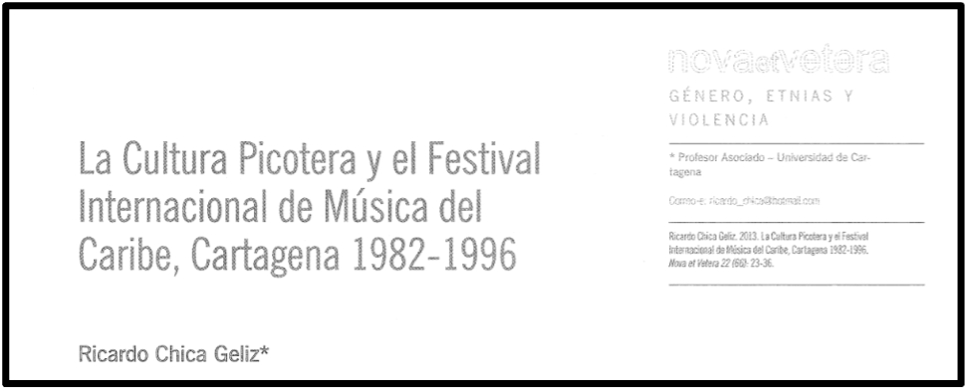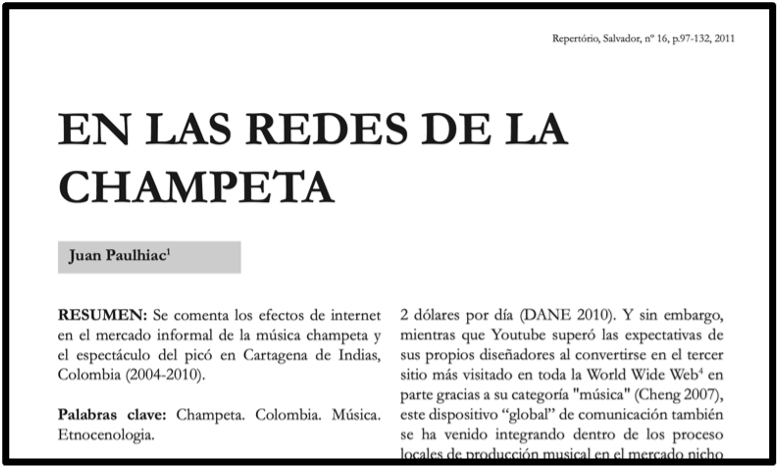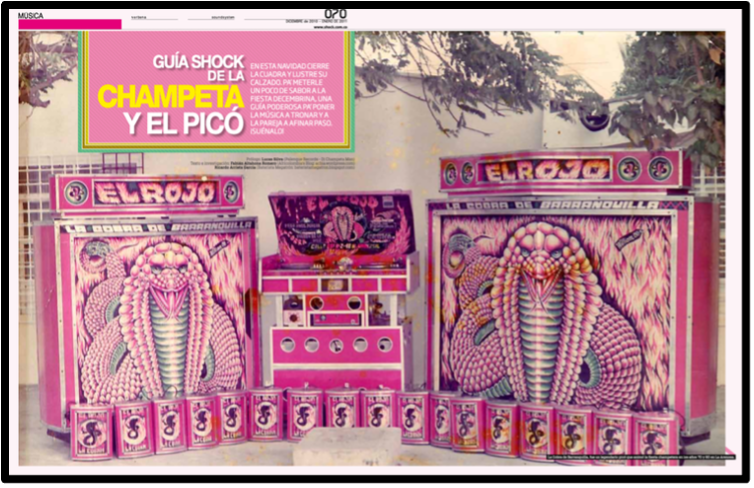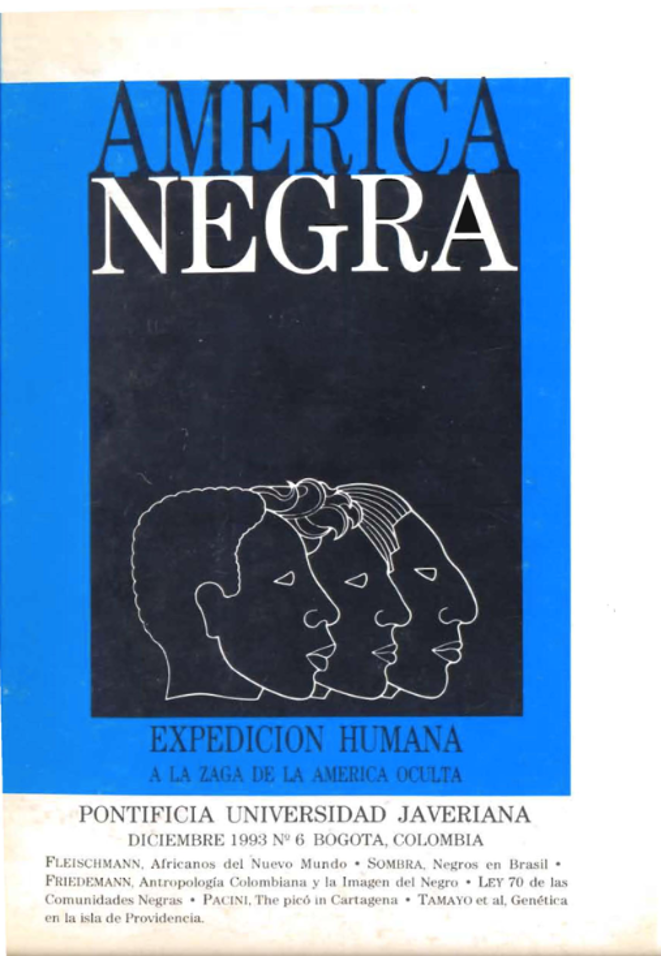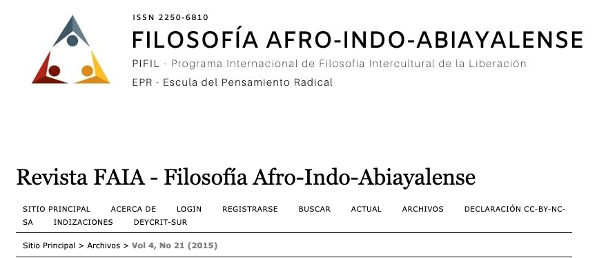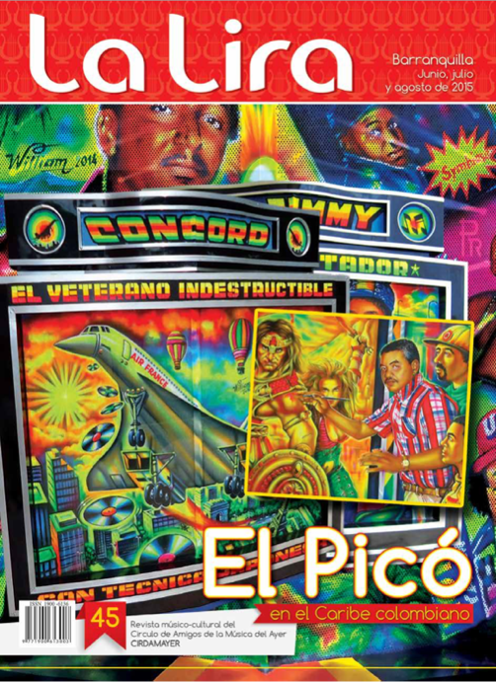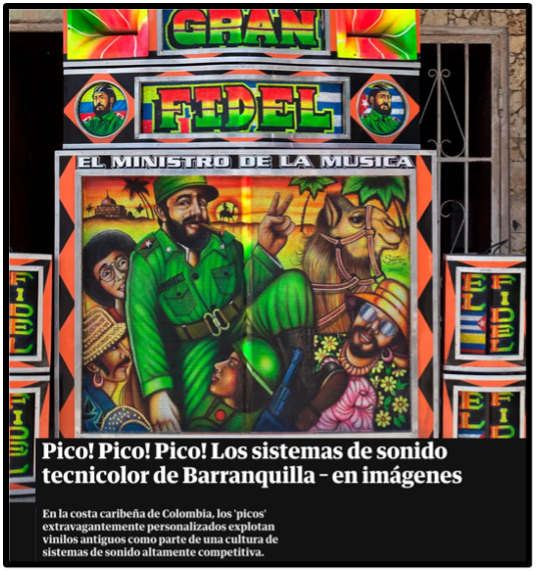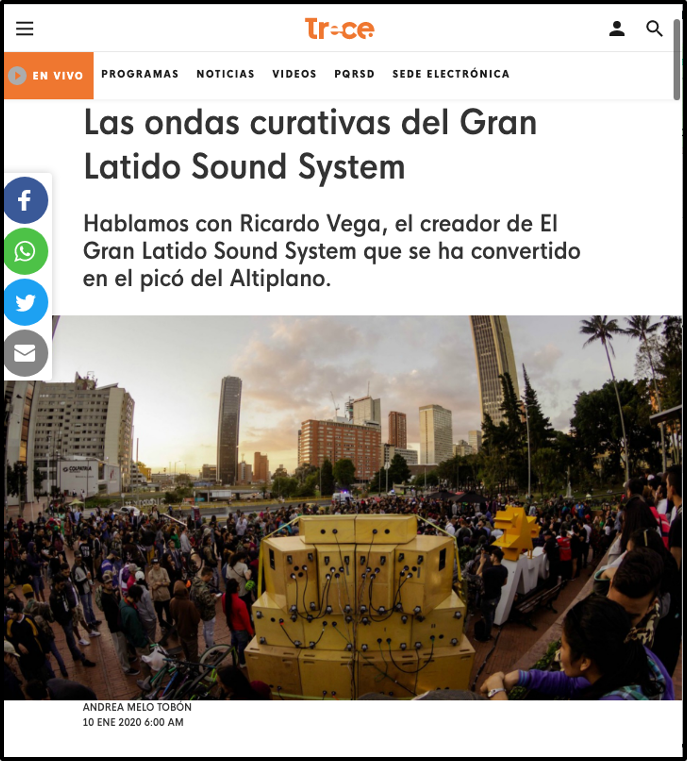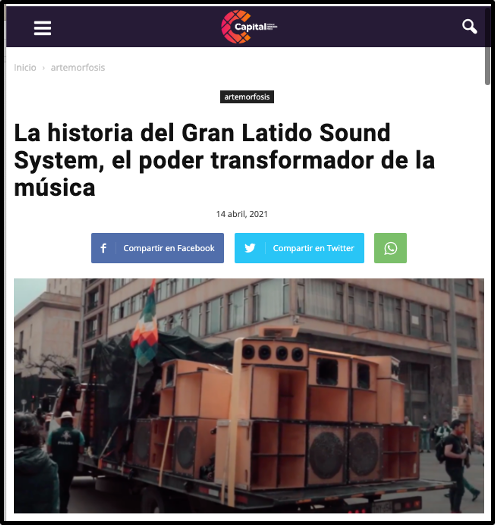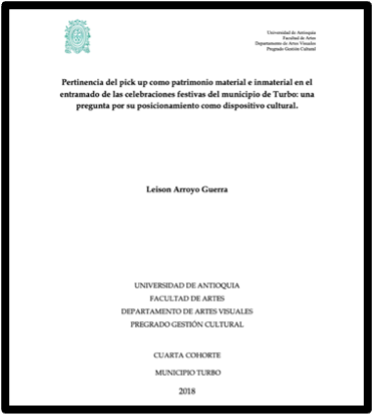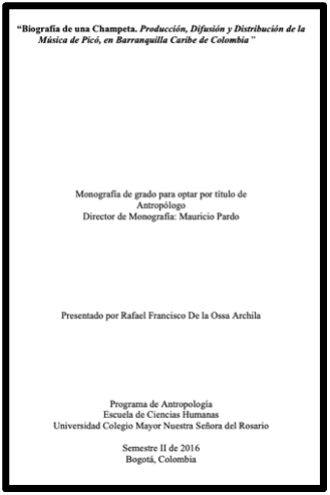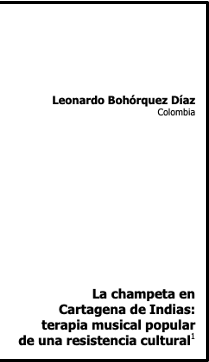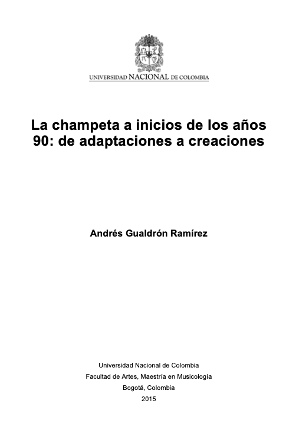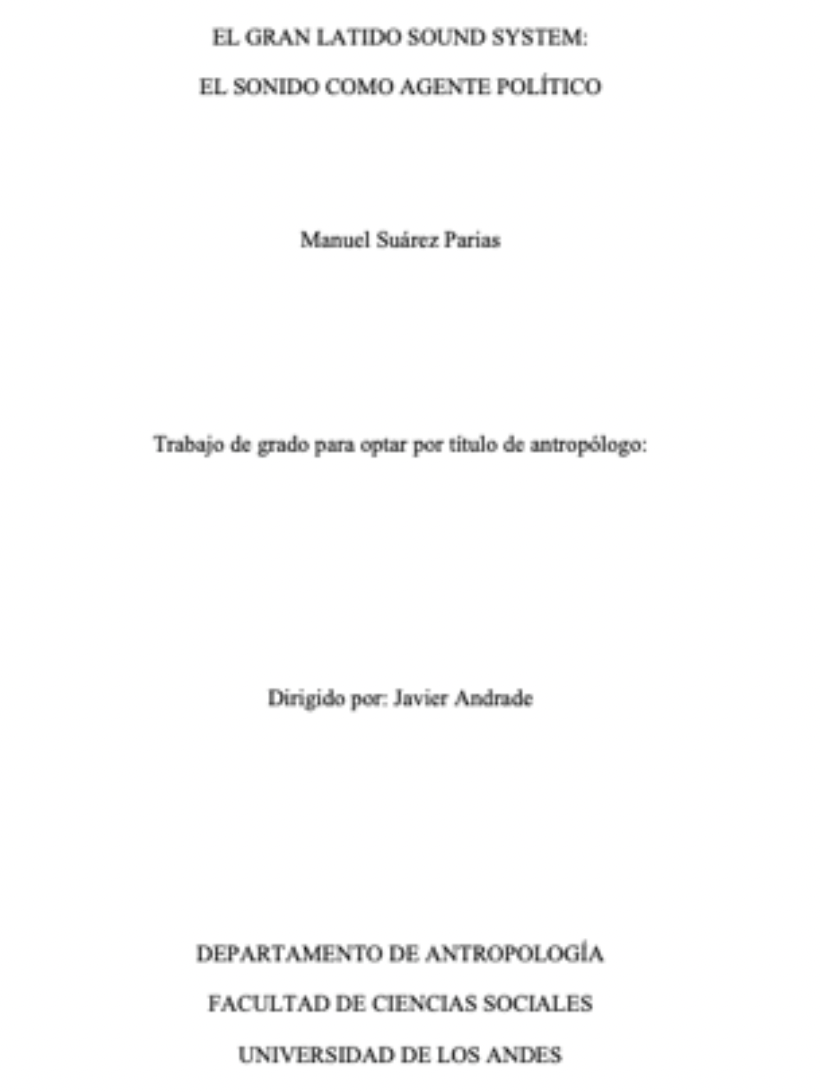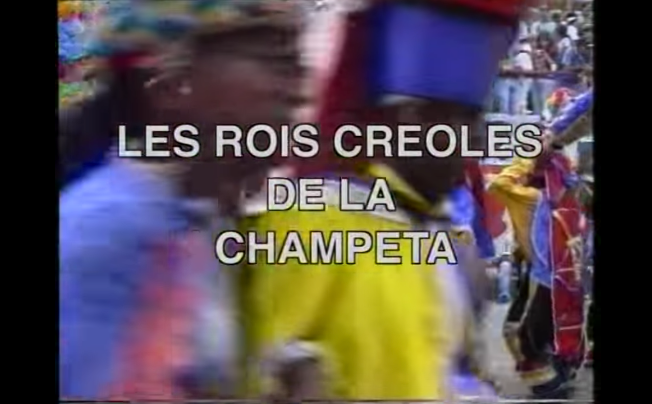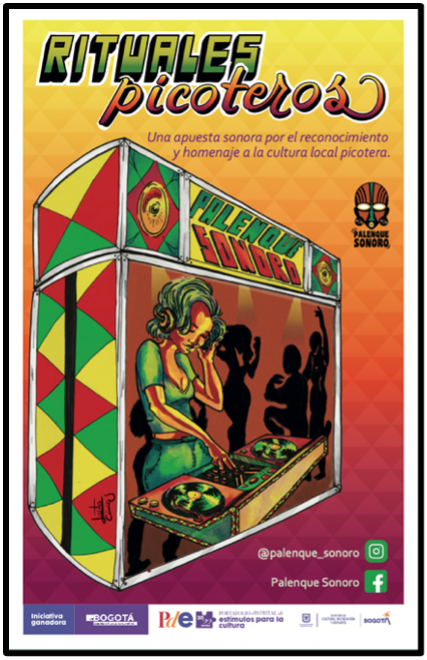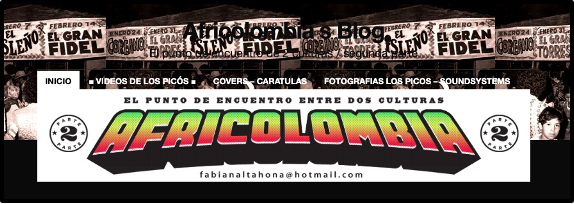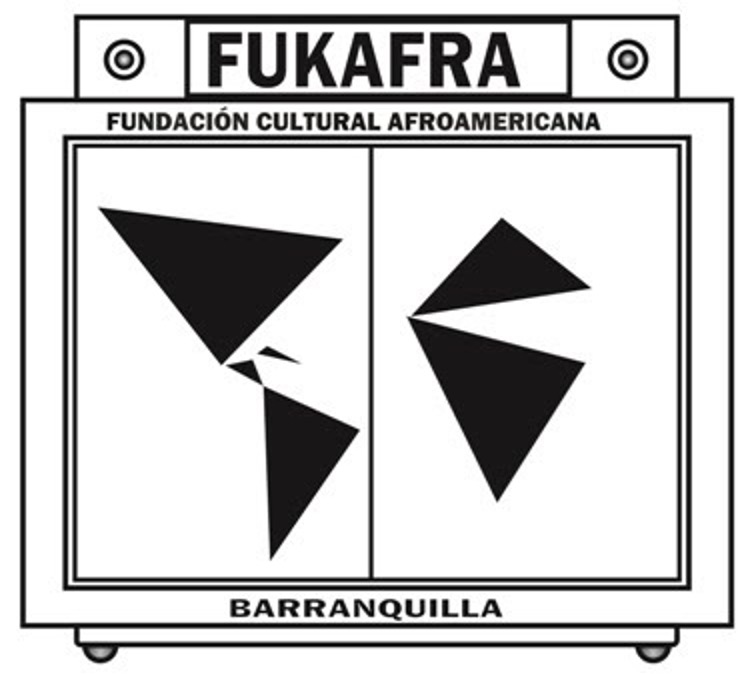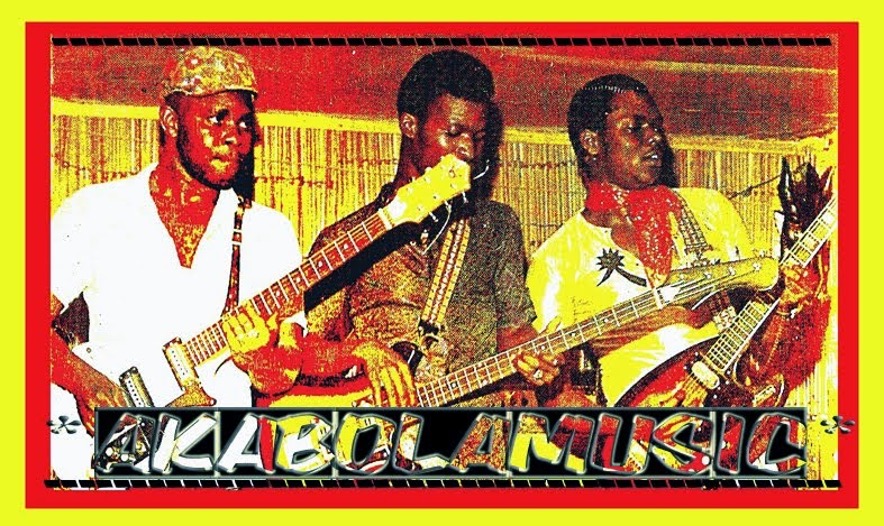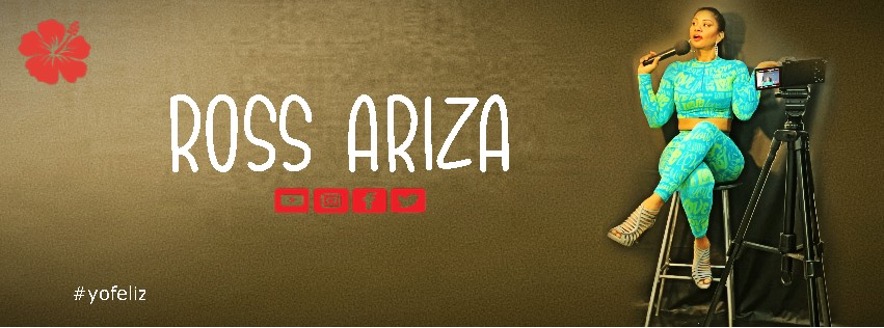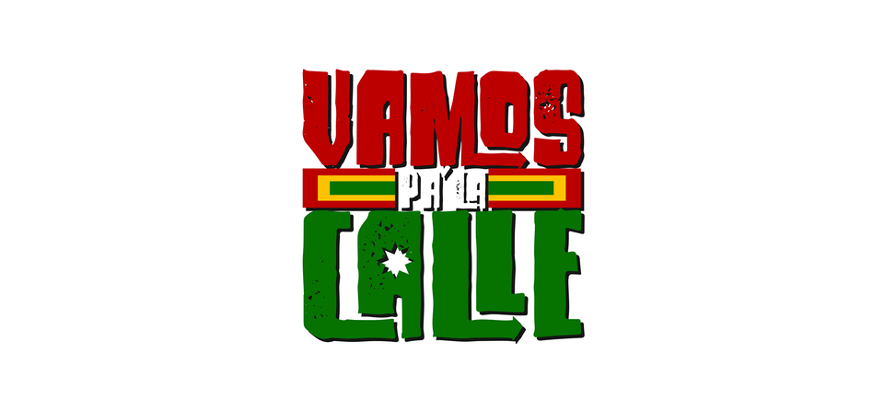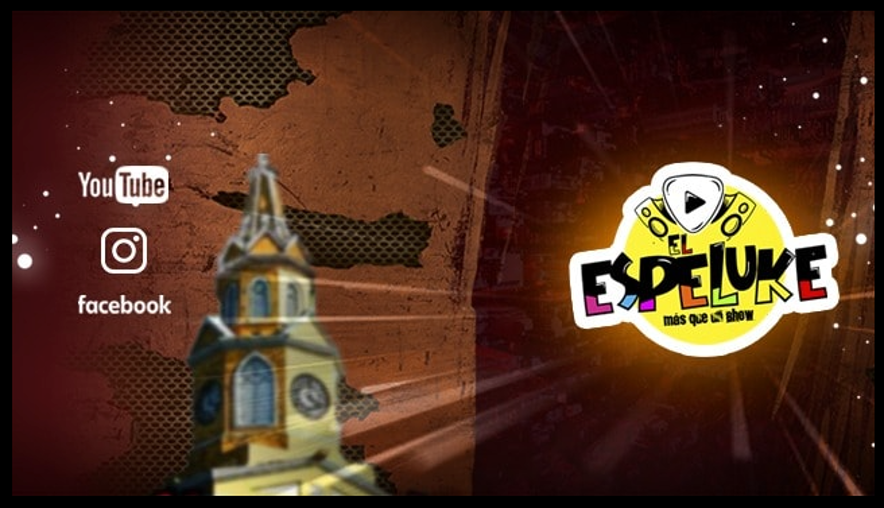EN: Mainly focusing on Barranquilla, and including examples from the Colombian Caribbean, the author describes the history of champeta and African music in the urban and sub-urban context. He theorizes a process of cultural and social recreation around the different types of symbolic capital of champeta and African music that has implications for the social […]
EN: The text aims to analyze the different elements that make up champeta not only as a musical style originating in the Colombian Caribbean but also as a rich cultural process with several decades of history, organic to the identity of that region. The author devotes several sections to analyze the picó movement from the […]
EN: This text addresses the subject of picós and champeta in Cartagena, highlighting their centrality in the festivities and their importance in the daily life of the inhabitants of the city’s popular neighborhoods. This monograph contains extensive fieldwork that describes in detail the actors in the picotero universe and the music production cycles of the […]
EN: This magazine article provides an introduction to the picós, the popular sound systems of the Colombian Caribbean, also presenting a summary of their history from the 1950s to the year 2000. It describes some of their technological features, their developments and the music played, as well as the names of the best-known crews. This […]
EN: The authors present an analysis of the relationship existing between the process of identity building and the the champeta parties and events taking place in Cartagena. With this aim, they offer a brief overview of the academic research on champeta cultrure and the existing theoretical debate, and a problematization of the construction of identities […]
EN: The journey of several music genres from Africa to the Caribbean and the process of appropriation and re-creation of these musics in the popular sectors of the Colombian Caribbean are the core of this detailed analysis. The description of the creation and development of champeta music, and the different actors who participate in this […]
EN: The author aims to show how the population of the Colombian Caribbean, especially in Cartagena and Barranquilla, has been part of socio-artifactual and socio-technical networks of leasure and music. Historically, the main technological actors within these networks have been the drum -until the beginning of the 20th century-, the jukebox and the radio – […]
EN: The circulation of music in the picó goes beyond that of the songs that are played, it is the circulation of the picó party, energized by the fans, and whose fuel is the constant renewal of exclusivity. According to author, More than “representing” or expressing social specific social conditions, the picó sessions reveal a […]
EN: The article analyzes the conditions in which the production of the International Caribbean Music Festival took place in Cartagena between 1982 and 1996. A section is dedicated to music circulation and everyday life in the Cartagena docks area and the role of the picós in this process. An interview with the owner of picó […]
EN: This text links a reflection on champeta and African music, both understood as “black music”, to culturally racialized representations of Africanness that are usually conflated under the term “black”. Urban music in particular, has faced discriminatory mechanisms, prohibitive denial or social invisibility, and logical paradoxes in its representation that can be organized into three […]
EN: Based on an economic analysis, the article reviews the effects of the Internet on the informal market of champeta music and the picó show in Cartagena de Indias, Colombia. From the production and circulation of music, to the staging and promotion of the picotera culture, with an emphasis on the local, national and international […]
EN: A short text introducing the main elements of the picó culture. Including some notable images and the names of some of the leading picós in Barranquilla and Cartagena, the text introduces the context of the picó culture, especially in the city of Barranquilla. ES: Un texto corto que presenta los elementos más importantes de […]
EN: Anthropologist Pacini Hernandez approaches the picó scene from a cosmopolitan angle, framing the phenomenon in a global context. This essay is divided into three sections. In the first section, she exposes the development of African music within the ‘world music’ category; in the second one, she finds a connection between the structural racism of […]
EN: Based on her personal experience as the daughter of a Barranquillero, who visits the Caribbean regularly and is familiar with the sounds of the so-called World Beat, the author describes and analyzes the culture of the picó, highlighting those elements representing the heritage and relationship of the African diaspora through Gilroy’s concept of the Black […]
EN: This text presents a vigorous defense of the African roots in the culture of the Colombian Caribbean as reflected in the picotero culture and music scene more in general. Contreras makes use of an academic language frequently overshadowed by poetic and literary licenses that refresh and give the story an inspiring, mystical feeling. The […]
Language: Spanish EN: Contreras’s narrative thread seeks to establish a relationship between Afro-diasporic religions and certain aspects of the picós, which he describes as ‘totems’, while engineers are ‘alchemists’. He thus traces the history of the picós, based on testimonies of connoisseurs who date the origin of the picotero movement in the 1920s (20-30 years […]
EN: This magazine article presents a short history of the picós in the working-class neighborhoods of Cartagena, from the stores selling basic audio equipment from the mid-20th century, going through an interesting list of picós, their owners, designers and technical creators of these equipment, to show the importance of these SST in the dynamics of […]
Language: Spanish EN: This short article includes a series of images of turbo picós which have become popular in the city of Barranquilla, igniting a sort of ‘turbo revival’ in recent years. These sound systems gain attention with their colourful paintings and the unique shape of the speaker boxes. It is an interesting sample for […]
EN: The text presents a brief interview with Ricardo Vega, founder of El Gran Latido Sound System, with a brief overview of the history of these SST and their relationship with the culture of Jamaica. It also also describes the sound system creation process and how Ricardo was influenced by various sound systems worldwide, and […]
EN: Based on an interview with Ricardo Vega, this short but interesting article on the Canal Capital website tells the story of El Gran Latido, a reggae sound system located in Bogotà, 2600 meters above sea level, with a focus on the interests and relationships in which this project is nurtured and the events in […]
EN: A dissertation discussing how picó culture became part of the sonic identity in the Gulf of Urabá. It ncludes an account of the local festive culture and cultural industry, and the emergence and development of the picó culture in this region. It also includes interviews with picó owners from the municipality of Turbo. The […]
EN: This text presents the results of an investigation on the picó scene in the city of Barranquilla and the surrounding areas, also integrating (to a lesser extent) information from Cartagena. The size of the crews, information about cost of events and sound system hire fees, the type of music played, information about technology, the […]
EN: The socio-cultural context of the so-called champeta or terapia music is presented, starting from a contextualization of the picós (or pick ups, or picops) as sound systems that mainly play this music genre. The context of these sounds of resistance and identity with a strong Afro influence are widely described in this article, result […]
EN: This study is a benchmark in the research around the economy of the picós and champeta music. As one of the first writings on the topic it is widely cited by other authors. The mastery and the rigorous treatment of the subject, as well as some observations about its cultural aspects, make it one […]
EN: Andrés Gualdrón, leading musicologist from Bogotá, writes one of the most exhaustive analyses of the early champeta music compositions. After a brief musical description of champeta, the author makes a bar-by-bar comparison between foreign and local songs, elaborating on valuable details such as the specific sequencers and keyboards used to make the music. A […]
(UNDERGRADUATE DISSERTATION IN ANTHROPOLOGY, FACULTY OF SOCIAL SCIENCES) EN: The author presents an ethnographic work divided into four chapters, in which he first reviews the interdisciplinary entanglenmet between anthropology and sound, in order to present three ways in which sound can be conceived as a form of knowledge. Secondly, he presents a summary of the […]
EN: A documentary presenting the history, context and features of the picós, the huge sound systems that are an important part of the urban identity in the Colombian Caribbean. Including interviews with researchers, artists, picó owners, technicians, DJs and dancers from the picó scene of Barranquilla and Cartagena. A great taste of the picó scene […]
EN: Known in Spanish as Los Reyes Criollos de la Champeta, this Colombian-French co-production was one of the first audiovisuals to deal with champeta culture in depth. It includes footages from San Basilio de Palenque, Cartagena barrios, Barranquilla carnival. It also features picotero record hunters in Paris such as Humberto Castillo and Ubaldo Iriarte, and […]
EN: A series of podcasts in Spanish, a tribute to the sound and musical resistance that has developed around the picó and its different cultural manifestations. It is the result of a collective investigative process from the city of Bogotá showing the influence of this cultural practice among migrants from the Colombian Caribbean in the […]
EN: Blog dedicated to the picó culture. Launched in 2012, it has become a key source for those interested in learning about picós, their culture, the music they play, the history of the different crews, the events. It features images of picós, vinyl records, sounds and an audiovisual showreel on the subject. ES: Blog dedicado […]
EN: Run by plastic artist and champeta researcher Dairo Barriosnuevo since 2012, this blog investigates the history of music, machines and anything-champeta. It is also a platform where this renowned artist from the Colombian Caribbean shares his works. ES: Dirigido por el artista plástico e investigador de la champeta Dairo Barriosnuevo desde 2012, este blog […]
EN: Directed by Carlos Montes Alcalá, it is a blog with more than 15 years of history, with entries on music, mainly from Africa and Afro-Colombian music, as well as picós. A bit outdated now, it used to be one of the classic references for investigation, a must read for restless people in search of […]
EN: The versatile Ross Ariza, a lawyer by profession and A journalist by trade, is constantly producing content for social networks, with a fairly journalistic format that consists of interviews with the main characters of the history of champeta, including picó owners, DJs, singers, musicians, or the food vendors from the Bazurto Market. Although dealing […]
EN: This channel is directed by Dj Dever, owner of the Cartagena-based Passa Passa Sound System, and hosted by singer Nando Black, better known as El Francotirador. Its contents are based on interviews with well-known characters in the champeta world, discussing both historical and current topics. ES: Este canal es dirigido por Dj Dever, propietario del Passa […]
EN: Hosted by the young Edgar Junior, this is a channel dedicated to current events in the genre, as well as topics of general interest. The format sees the host picking up his interviewees by car and interviewing them while driving through the city of Cartagena. ES: Conducido por el joven Edgar Junior, es un […]
EN: Jose Davido is an influencer who started making Christian and vallenato music videos, but ended up making champeta videos, mainly because of their popularity and the number of views they reached. He usually appears on screen alone discussing news and rumors from social networks, press, videos, often not entirely verified. ES: Jose Davido es […]


